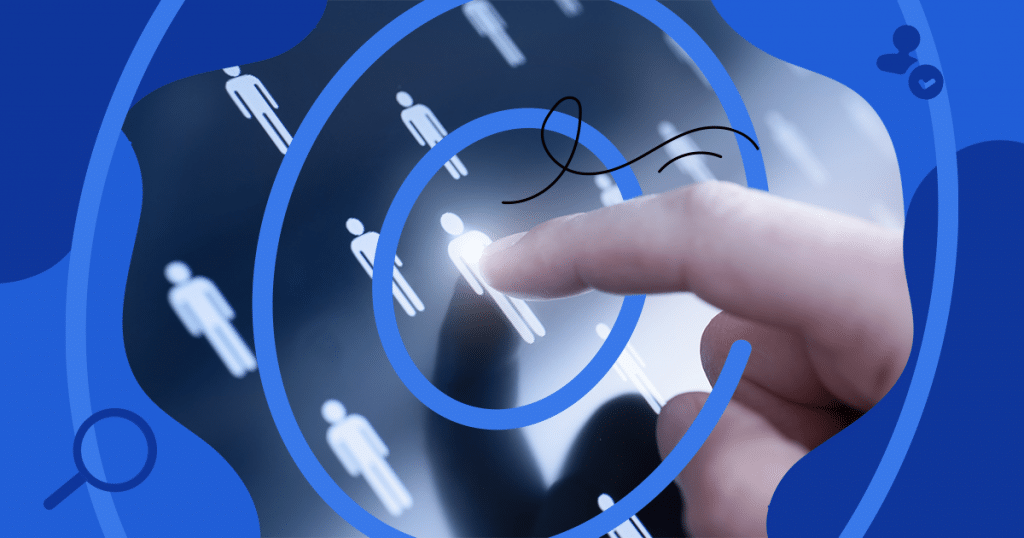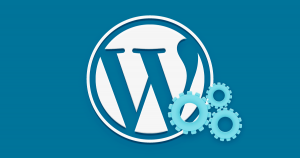The term artificial intelligence has been around for 75 years.
Long enough for computer experts to exploit its potential by designing software for machines to learn from data how to perform human-like tasks.
We’re talking about driving a car, ordering products we as “owners” didn’t even know we needed and, of course, hiring employees we might have overlooked.
Whether managers at Apple or Google consider AI in hiring process functions to be as important as marketing, we may never know.
But today, Artificial Intelligence is transforming the processing of HR functions like recruitment and application scanning, sorting, and rating.
As for artificial intelligence in marketing, just think of Siri or Alexa if you have any questions about its success.
This blog will break down a little science behind AI and more:
What is Artificial Intelligence (AI)?
AI is “artificial” because we define intelligence as a human quality.
You can input numbers into a calculator and get correct answers to math problems, but your calculator can’t learn the answers. AI processes can.
Knowledge is power and data drives AI-designed software to learn and discover through data.
It still takes humans to design the software to ask the right questions, but the programs they produce can perform high-volume, high-intensity tasks in seconds without fatigue.
How is AI applied in Recruitment Processes?
AI can scan applications in HR and recruitment, choose highly competitive candidates, and then learn from their successes or failures.
Imagine an HR department with thousands of workers and tens of thousands of online applications each month.
Managers scanning through those applications might target experience and education as the most important and hire based on those two data sets.
At the same time, simple software prompts can break down the candidates into a series of scores given to each application and offer the best prospects numerically.
Can the computer learn from those lists? No. Based on the extremely high number of applications, the HR department probably can’t learn from the success of their chosen few either.
But AI can.
Resume screening
With AI, candidates’ information can be drawn down deeper than the above examples by screening age and demographics, earnings, industry experience, and even job titles.
When cross-checked, success rates can be extrapolated through the “learned” experience of the AI software for similar candidates.
Drilling down further, AI predictive analysis can uncover inaccuracies or even untruths in a candidate’s application or resume.
The more data analyzed, the better the learning process becomes and the higher the accuracy of the predictive scores.
Personality testing
Predictive analysis can also help understand personalities, breaking down applicants’ answers to their extroversion, neuroticism, and even openness to changes in work settings.
These soft skills are essential for collaborating with other employees, and AI can help predict how specific candidates will mesh with teams.
AI candidate Engagement
Before any human HR involvement, AI software can offer personalized interaction via chatbot with possible recruits based on their initial application and ask detailed questions and interpret responses based on keys AI has learned.
AI chatbot applications can interpret responses while removing personal bias that can creep into human interviews.
Benefits of AI Implementation in the Hiring Process
Carefully scripted and developed AI makes engaging with potential hires a faster, more successful approach.
The better the software, the quicker it will learn the businesses’ hiring processes and the success or failure of recruitment features.
More time for success
By utilizing AI in the recruiting process, businesses can narrow down applicants through previously time-consuming human tasks, freeing recruiters to focus their efforts on the best candidates.
Those candidates can be contacted, asked pertinent questions, and scheduled for interviews, automatically.
Improve recruit interaction
Although AI may remove some aspects of human contact, recruits may be happy to receive immediate responses to questions in the application process.
Feedback on their hiring status can be instantaneous, up to and including a yes/no response, and may offer support for later recruitment.
Removal of biases
As humans, we hold unconscious biases based on our life experiences.
We carry these attitudes and stereotypes in our minds and may attribute them to other people without any evidence about them beyond what we’ve seen in others.
AI narrows the scope of recruitment processes to facts and figures, the complex data that algorithms crunch to make learned decisions.
In doing so, a larger group of qualified candidates can be considered.
No more missed talent
Beyond the cost savings that AI can offer, you’ll never miss talent again.
The removal of biases and AI’s understanding of personality testing and predictive success scores can target suitable job candidates, even if the talent has applied for other positions.
By rescreening past applicants, new positions can be filled by recruits that would have been overlooked.
Talent can also be pulled from sites like LinkedIn, narrowed by their social media use or candidate databases and job boards.
Four Challenges of Applying AI in Recruiting
Algorithms only go so far and setting up an AI system can be a challenge.
1. Upfront cost issues
Some managers will always balk at high-cost outlays for new or unproven products, no matter the benefits.
Regardless of the ROI of installing AI, the prices are going to be an issue.
2. Training and gaining engagement
Although bringing AI to your recruiting process is likely to have positive results, there’s a need for ongoing training.
HR departments may fear that implementing AI will destroy their current efforts or even replace workers. That’s unlikely.
However, getting employees on board with new technology is challenging.
Upfront integration and step-by-step change explained thoroughly will increase buy-in.
Understanding the output is also necessary for the optimal performance of AI, and training HR personnel to use the new system will take time.
3. The need for data
AI doesn’t work right off the bat. Collecting data is a daily aspect of AI and teaching the algorithm to learn takes time.
Managers and IT specialists need to interface appropriately with the data collected to benefit the recruiting process.
Deciding on which data to collect and the appropriate AI learning levels needed is also a must.
4. Losing the human touch
Although successful AI implementation can extend the boundaries of applicant interaction, there’s a learning curve.
First-time chatbot interaction by applicants can be complicated, and some users may prefer human communication.
Fear of using new technology can make HR jobs harder, but candidates may also be negatively affected if they don’t feel a human connection.
This could result in the loss of quality recruits.
Three Success Stories of the Implementation of AI in the Hiring Process
Many companies worldwide have implemented AI to refresh, speed up, and enhance their hiring process. A decade of results is primarily positive.
Unilever strengthened with AI
Unilever, the Dutch-British consumer-goods company, has had dramatic recruiting results by having candidates start their interaction online by playing games.
The neuroscience-based games on the Pymetrics platform engage candidates who submit their LinkedIn profiles to gain access.
Enough data is collected in 20 minutes to ascertain if their results match the specific jobs available.
If they do, they move on to the second phase of screening before any in-person interaction.
According to Mike Clementi, VP of human resources for North America at Unilever, applications surged from 15,000 to 30,000 in the first 90 days after the AI process was implemented.
Recruiters spend just a quarter of the time previously needed on screening, saving millions.
Streamlined evaluations at IBM
IBM, with 350,000 global workers, has a never-ending recruitment task.
Their AI systems prioritize the process of finding the right people for the correct positions.
A significant function of their recruitment AI is taking job market data and job applicant information to predict the time necessary to fill positions.
That data also flows with the AI’s ability to mesh required skill sets and applicant skills described in resumes.
The confluence produces scores that predict future job performance and thus top candidates for recruitment.
Netflix and AI for content creation and recruitment
Netflix is best known for its streaming entertainment system, using AI to effectively cull definitive information about its viewers and their habits to offer what they consider the most efficient content.
At Netflix, that means the cost of the content isn’t nearly as significant as the company’s cost per hour of viewership.
Netflix applies the same dollar cost analysis to the use of AI in HR functions.
For several years now, the company has increased its hiring speed and reduced overall HR recruitment costs by allowing algorithms to find just the right fit for clerical, management, and even content creators.
The savings greatly outweigh costs related to HR artificial intelligence software costs in HR recruitment.
Wrap-Up: AI in Hiring Process Might be the Way to Go
Now that you’ve seen what works to make AI successful in the hiring process, like saving time, reducing costs, finding the best candidates, and some challenges like getting employee buy-in and upfront costs, you can make better decisions on its uses in the workforce.
Because of the success of huge companies like IBM and Unilever, all things point to AI continuing to expand into even more aspects of the business world.
If you’re ready to learn more about AI in business applications, check out our recorded webinar about the role of AI in marketing.
It has the special participation of Paul Roetzer, founder and CEO of PR 20/20 and the Marketing Artificial Intelligence Institute.









